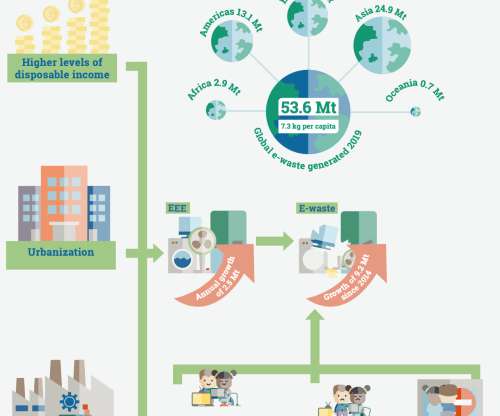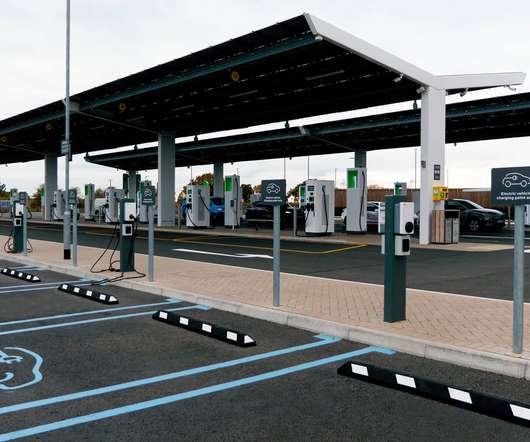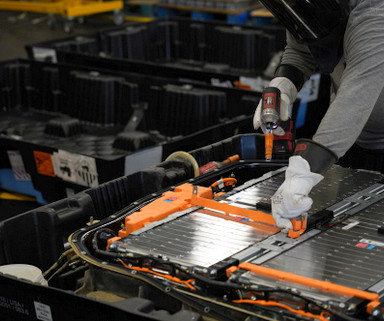UN: global e-waste surging; up 21% in 5 years
Green Car Congress
JULY 5, 2020
million metric tonnes (Mt) of electronic waste was generated worldwide in 2019, up 21% in just five years, according to the UN’s Global E-waste Monitor 2020. of 2019’s e-waste was collected and recycled. According to the report, Asia generated the greatest volume of e-waste in 2019—some 24.9 A record 53.6













Let's personalize your content